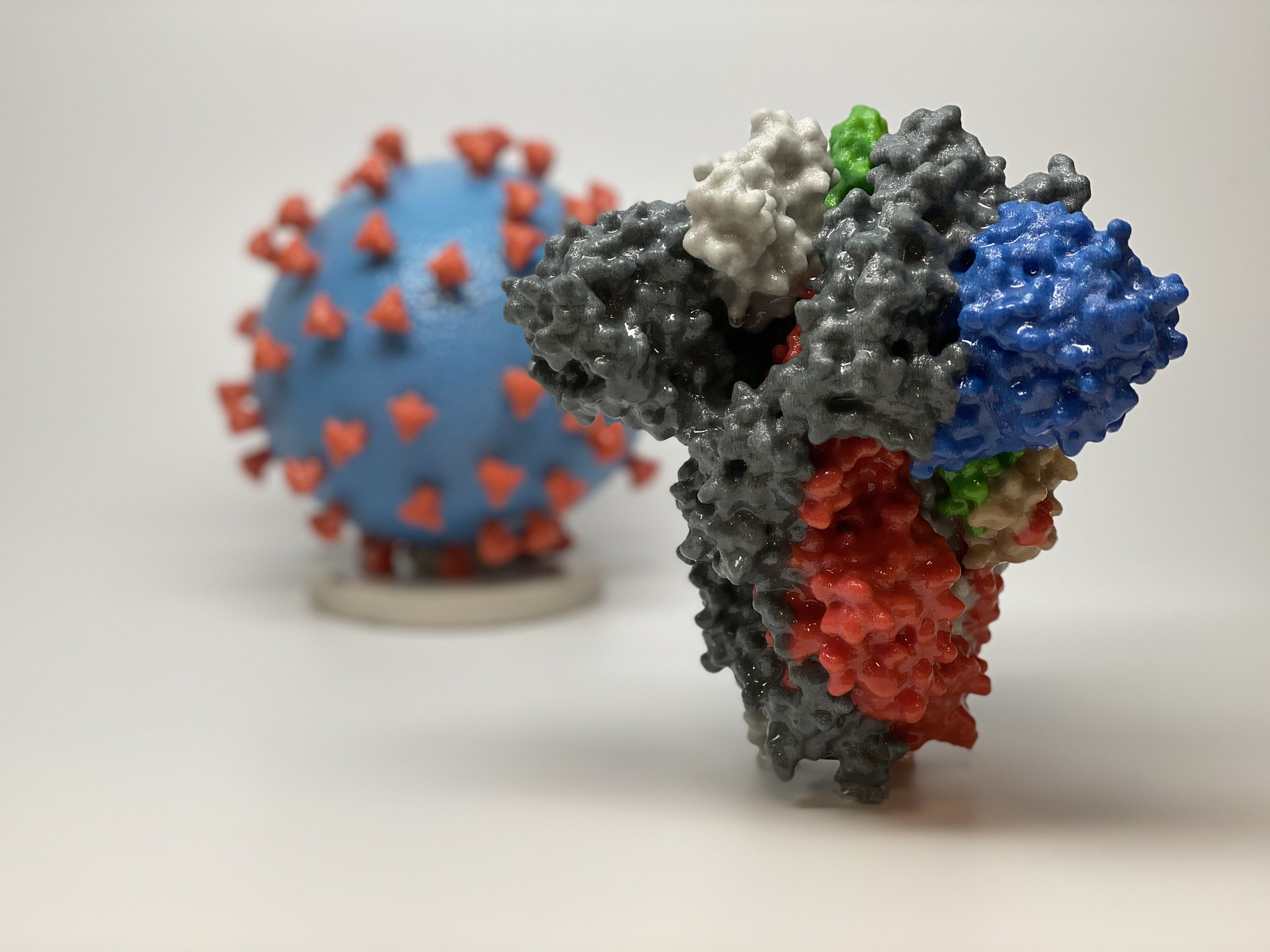Long COVID Point To Damage To The Vagus Nerve: Studies
 |
| This image shows a 3D print of a spike protein of SARS-CoV-2—the virus that causes COVID-19—in front of a 3D print of a SARS-CoV-2 virus particle. (Courtesy of NIAID/RML) |
Emerging studies now suggest that many of these symptoms may be a consequence of damage to the vagus nerve. As the body’s primary communication superhighway, the vagus nerve extends into every major organ in the body, including the heart, lungs, and gastrointestinal tract. Injury to this nerve, therefore, can disrupt the systems we rely on to breath, digest, and simply function on a daily basis. Here, we will highlight recent insights gained from a team in Spain investigating the impact of COVID-19 infection on the vagus nerve.
Llados et. al began their study by recruiting over 300 individuals experiencing Long COVID symptoms after a recent mild or moderate Covid-19 infection. Among them, two-thirds reported at least one symptom linked to vagus nerve dysfunction. Symptoms, such as persistent cough, changes in speech (dysphonia), difficulty swallowing (dysphagia), increased heart rate (tachycardia), GI issues, dizziness and cognitive complications, were reportedly more common in those with Long COVID compared to individuals that were never exposed to the virus or had fully recovered following acute infection.
Next, investigators took a closer look at the nerve itself using ultrasound imaging. In twenty percent of those reporting Long COVID symptoms, they observed significant thickening throughout parts of the vagus nerve that extend out from the neck and into the chest. Nerve thickening often results from inflammatory damage. Lldados et. al, therefore, speculate that these structural changes in the vagus nerve were likely a consequence of direct viral infection, as well as indirect damage from robust activation of the immune system.
Compared to individuals that recovered with no lasting symptoms from COVID-19 or were never exposed to the virus, forty percent of those with Long COVID also had observable flattening of the diaphragm, a muscle at the base of the lungs that contracts to control breathing. This was often associated with a measurable reduction in lung pressure, which could explain symptoms like shortness of breath and light-headedness. To their surprise, Llados et. al observed normal imaging in the rest of the lungs, suggesting that respiratory symptoms related to Long COVID may not be a result of direct injury to the lungs. Instead, injury to the vagus nerve likely disrupts signaling to the diaphragm, impairing this muscle's ability to contract and expand to its fullest extent.
Given how many organs depend on the vagus nerve for direction, Llados et. al found that damage to this nerve impacted other vital systems as well. Individuals with Long COVID exhibited greater heart rate variability, changes in speech, difficulty swallowing, and reduced mobility in the gastrointestinal tract. The differences between this group and those that were not exposed to COVID-19 or did not develop Long COVID following acute infection were not subtle.
These findings suggest that the vagus nerve may be a possible therapeutic target for treating Long COVID. As we discussed in a previous installment of our vagus nerve series, increasing reports show that vagal nerve stimulation can reduce inflammation throughout the body. Little is known, however, about the long term consequences of injury to this nerve. Understanding the impact of Covid-19 infection on the vagus nerve may provide new insights on how Long COVID affects the body.




.png)



Comments
Post a Comment